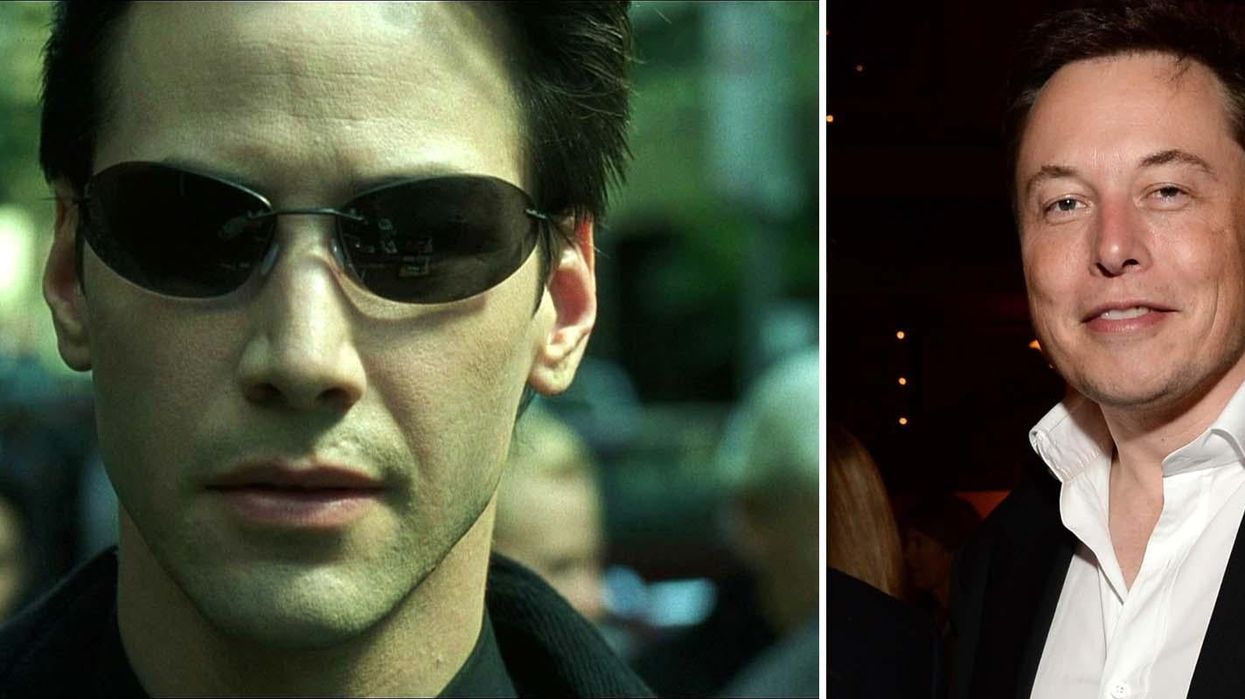Darin Graham
Jan 04, 2018

Picture:
Michael Kovac/Getty Images for Vanity Fair/Warner Bros/Roadshow
If you grew up playing computer games like The Sims, in which you would build houses and watch as the 'sims' you created carry on with their lives, you may be irked by this story.
In later versions of the game - genetics and DNA advanced and your 'families' could create descendants.
Your 'sims' would have children, grandchildren, great-grandchildren and other family members all over town.
What if we are 'sims?' And someone else is controlling us? Like our future descendants?
It's an idea that's attracted the attention of Elon Musk - who has previously said that there is only a "one in billions" chance that we're not living in a computer simulation.
The SpaceX and Telsa CEO suggested at a tech conference that we are going about our lives in an artificial world controlled by artificial intelligence and highly-powered computers.
Musk believes the strongest argument for the probability that we exist in a simulation is the progression of graphics and 3D.
He said:
40 years ago we had Pong - two rectangles and a dot. That’s where we were.
He adds that now, things have become much more "photorealistic" and that it's improving all the time.
If you assume any rate of improvement at all, then the games will become indistinguishable from reality, just indistinguishable.
An expert from Oxford University has also argued that we are living in a computer simulation.
InAre you living in a computer simulation? - philosophy professor Nick Bostrom says that humans are likely to go extinct before we develop the technology to enter a 'post human stage.'
He adds that it is unlikely our future descendants would run a simulation of their history, therefore we are "almost certainly living in a computer simulation."
But another group of researchers at the University of Oxford argue that the idea we are living in a simulation is impossible.
Physicists Zohar Ringel and Dmitry Kovrizhin said in journal Science Advancesthat not all aspects of our human existence can be simulated using computers. The report states:
...even just to store the information about a few hundred electrons on a computer one would require a memory built from more atoms than there are in the universe.
Ringel and Kovrizhin say this is due to something called 'quantum Hall effects'.
So if there were a simulation - it would be become more and more complicated as the number of atoms and particles increase. They add:
If the growth is exponential, or in other words if for every extra particle one has to double the number of processors, memory, etc., then this task becomes intractable.
But Bostrom argues that the advanced 'posthuman' civilisation will have access to immense amounts of computing power and suggests that current trends already show this is possible.
Although researches are keen to entertain the idea of a simulation - they do note that the ability to run it on our computers is impossible.
Ringel and Kovrizhin add that capable algorithms have yet to be discovered as they are outside of what can be imagined in the laws of theoretical physics.
However, there's another team of scientists who The New Yorker reports are secretly planning to escape the simulation, led by two billionaires.
So who knows?
HT Ladbible
Top 100
The Conversation (0)













